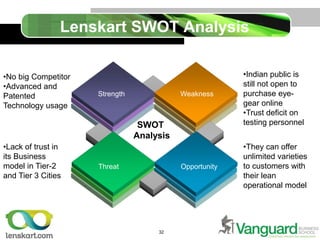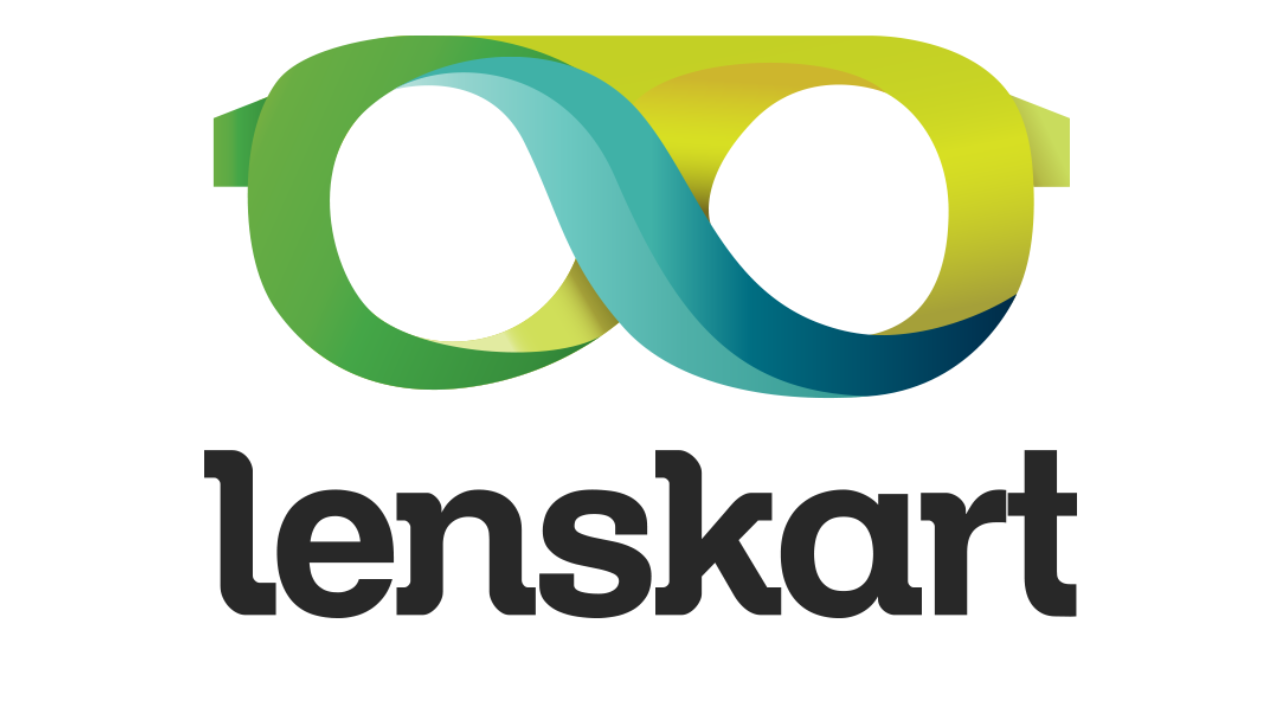Introduction
Lenskart is an Indian optical prescription eyewear retail chain, based in Faridabad. As of September 2020, Lenskart had 500+ stores in over 40 cities in India. Its manufacturing facility in New Delhi manufactures 3 lakh glasses a month. The business plan of Lenskart involves business model, Revenue model, SWOT Analysis and many more.
The optical business in India firmly held on to the traditional business model of conducting business through brick and mortar stores only. Although the E-commerce business was fast gaining traction during this time and online shopping was fast catching up, it focused mainly on household items and appliances, groceries, food and supplies, clothing, footwear, jewelry, electronics, toys and games, smartphones, and digital gadgets and many more. Sunglasses were perhaps the only eyewear that was available online

Lenskart works as both an offline and online distribution channel and is one of the leading e-commerce brands. Lenskart productions can be ordered by the customers through Lenskart’s creatively designed physical offline stores.
Revenue Model
The company had a valuation of $1 billion by December 2019 after Softbank invested around $2 million. Peyush Bansal, a former Microsoft employee, founded Lenskart in 2010 along with Amit Chaudhary and Sumeet Kapahi. In 2020, Lenskart generated total revenue of ₹1,000+ crore. Financial backers of Lenskart include TPG Growth, International Finance Corporation and Adveq Management.
The platform’s most recent investment was the $275 million, it raised from SoftBank Vision Fund, in the month of December 2019, after which the platform reached a valuation of $1.5 Billion.
SWOT Analysis
Strengths
- Pricing may be a strong point if you sell your sunglasses cheaper than your competitors.
- Variety of styles you offer, such as designer glasses and styles that appeal to a variety of ages.
- Experienced Personnel, that’s another plus when it comes to your sunglasses business, especially if your background is in retail.
- A willingness to educate consumers on the best type of UV protection or to offer free basic repair services so buyers remember your shop when they need another pair.
- Access to suppliers is another strength you want to bring to your business.
Weaknesses
- Competition to common vendors: If you only sell your sunglasses online or in a retail shop, you may have a hard time matching the sales volume of competitors, which could be a weakness if their greater numbers give them better pricing from common vendors.
- Barriers to entry: Depending on how much storefront space rents for in your area, the barrier to entry might be low which could mean extra competition.
- Pricing: Selling sunglasses is limited flexibility in pricing. Go too high, and you may lose business to the shops, kiosks and department stores that cost less.

Opportunities
- Opportunities for selling sunglasses may include an increased presence in an area with sunny weather, or a greater inventory heading into the summer months.
- If your business currently relies on a storefront or kiosk for its sales, adding an online store gives you a way to find even more buyers and an opportunity to expand your business.
- The ability to customize sunglasses with logos and images that don’t get in the way of the person’s vision, a new trend in the sunglasses business, is another opportunity to stand out if you offer it earlier, cheaper or better than the competition.
Threats
- A new sunglasses shop set to open nearby is one obvious threat.
- Department stores that expand the designs and styles they offer, or a nearby kiosk that can offer his wares for a lower price because his infrastructure costs are lower than yours.
- A lack of skilled people willing to work in your shop is another threat. If other jobs are abundant in your area, you may need to pay more to entice qualified retail staff.
Conclusion
Lenskart has overcome a wave of challenges, making the blend of consumer enthusiasm, suitable work culture, and establishing precise benchmarks as their weapon.




